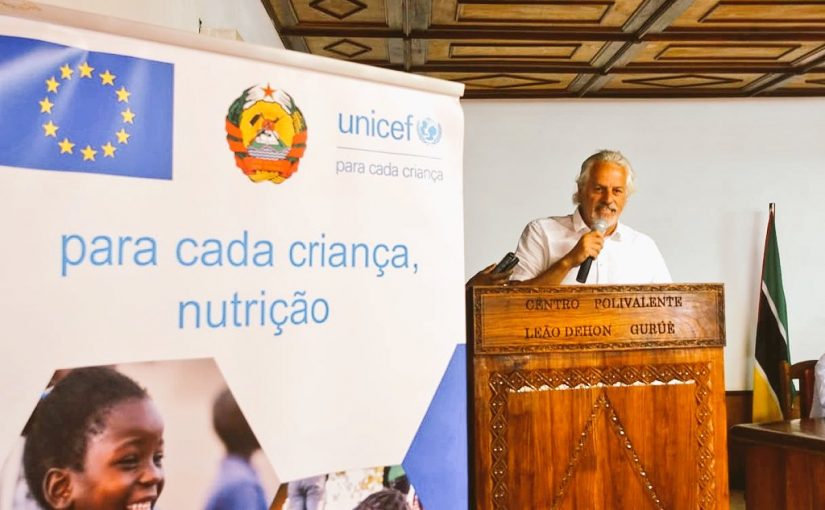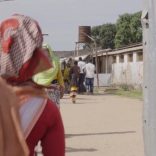Mozambique: Malaria killed 16 since January in Tete province
Mozambique malnutrition fight draws Unicef praise

Picture: Twitter / @UNICEF_Moz
The deputy representative of the United Nations Children’s Fund (UNICEF) in Mozambique, Michel Le Pechoux, has praised the southern African nation fight against malnutrition. The UNICEF official said the country is on a good path towards reducing chronic malnutrition in favour of a generation free from economic problems.
The official made the announcement on Tuesday in the mountainous district of Gurué, in central province of Zambezia, at a workshop on the Multisectoral Program for the Reduction of Chronic Malnutrition (PAMRDC), and Participation and Community Education (PEC – Nutrition).
“Mozambique is a country that is well on the way to reducing economic problems that contribute to increasing chronic malnutrition among the population,” he said.
However, Le Pechoux encouraged the government of Mozambique and Zambezia province, in particular, to sensitise all local leaders for their full commitment to nutritional education and environmental sanitation.
He also stressed the need to design a strategic social communication approach to behaviour change, particularly in rural areas where the nutritional situation is critical, although these sites are potentially barns in food production.
Le Pechoux challenged managers at various levels to improve fieldwork by, for example, creating model families and assessing, in practice, a degree of satisfaction of the results obtained at certified sites by having the minimum acceptable standards for the well- being of the community.
The results, although still low, are very encouraging, said Michel Le Pechoux, who advocated accelerating the creation of model families.
He pointed to the certification of 360 model families under the criteria established by the World Health Organisation, under the program for the reduction of chronic malnutrition in children under five years of age, with financial support from the European Union and Unicef.
These are families identified in the towns of Murrimo Sede, Metovolas, Magige, in the Gurué district, and Namaria, in Lugela, both in Zambézia province.
Community and religious leaders, elementary polyvalent agents, health personnel, as well as a multi-sector team and UNICEF partners participated in the event.
Meanwhile, Zambezia’s permanent secretary, Elisa Somane, reacting to the balance of activities carried out in the first nine months, called for a combination of efforts among the sectors involved.
“It is unthinkable to speak of human capital development with high rates of malnutrition,” she said.
The program, with a time horizon of 2017/2020, aims essentially at promoting actions conducive to behaviour change, towards good food and health practices with a view to improving the nutritional status of young children and pregnant and breastfeeding women.
The technical secretariat for food and nutritional security (SETSAN) reports that about 43 percent of children in the country suffer from chronic malnutrition, with Zambezia 41 percent of this social stratum suffering from this disease.
Para melhorar o estado nutricional das crianças na Zambézia, decorre hoje no distrito do Gurué uma reunião de balanço da implementação do Plano de Acção Multisectorial para Redução da Desnutrição crónica. #EUnutritionMoz pic.twitter.com/V8LEJHgpXG
— UNICEF Moçambique (@UNICEF_Moz) November 6, 2018












Leave a Reply
Be the First to Comment!
You must be logged in to post a comment.
You must be logged in to post a comment.